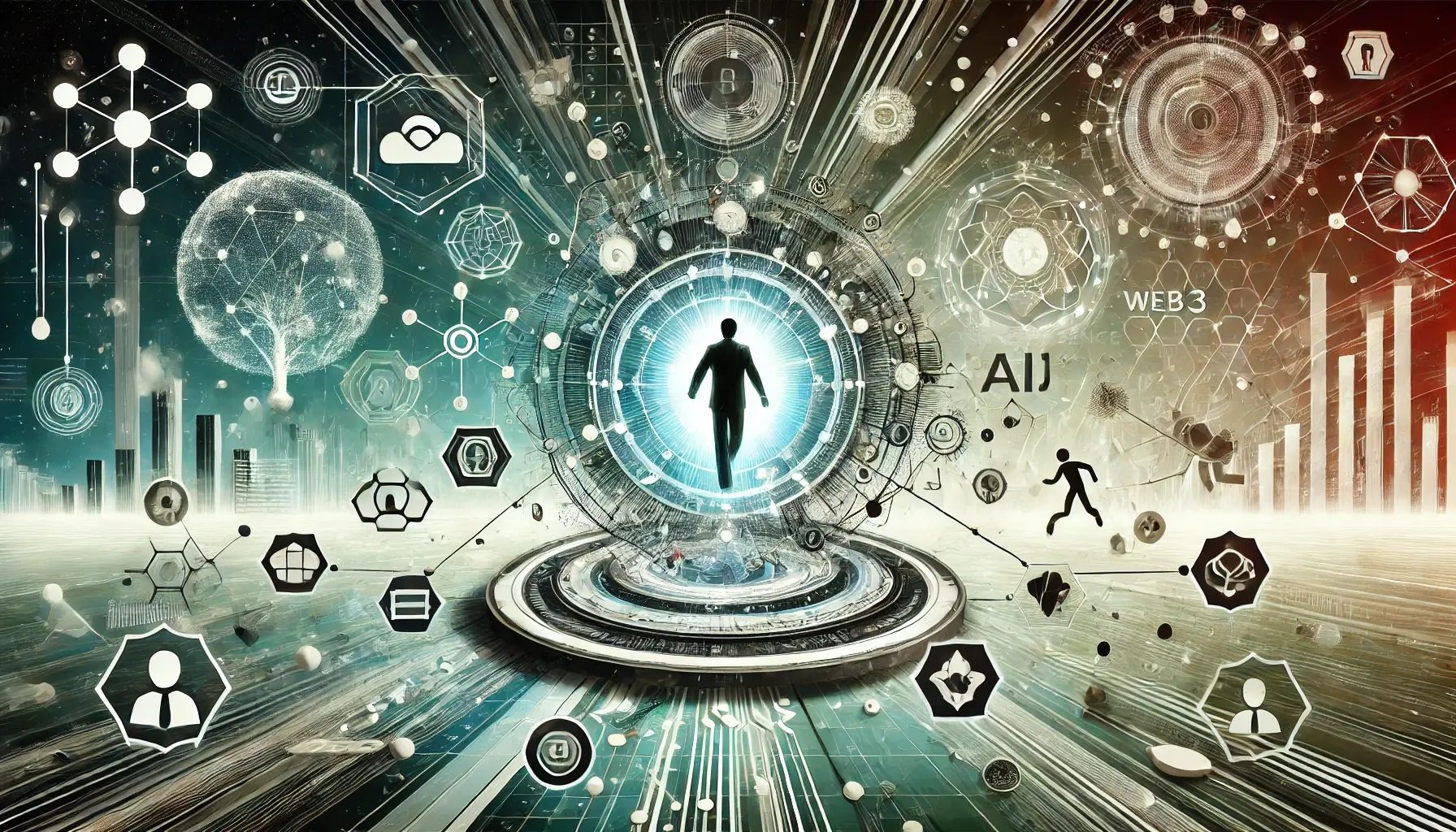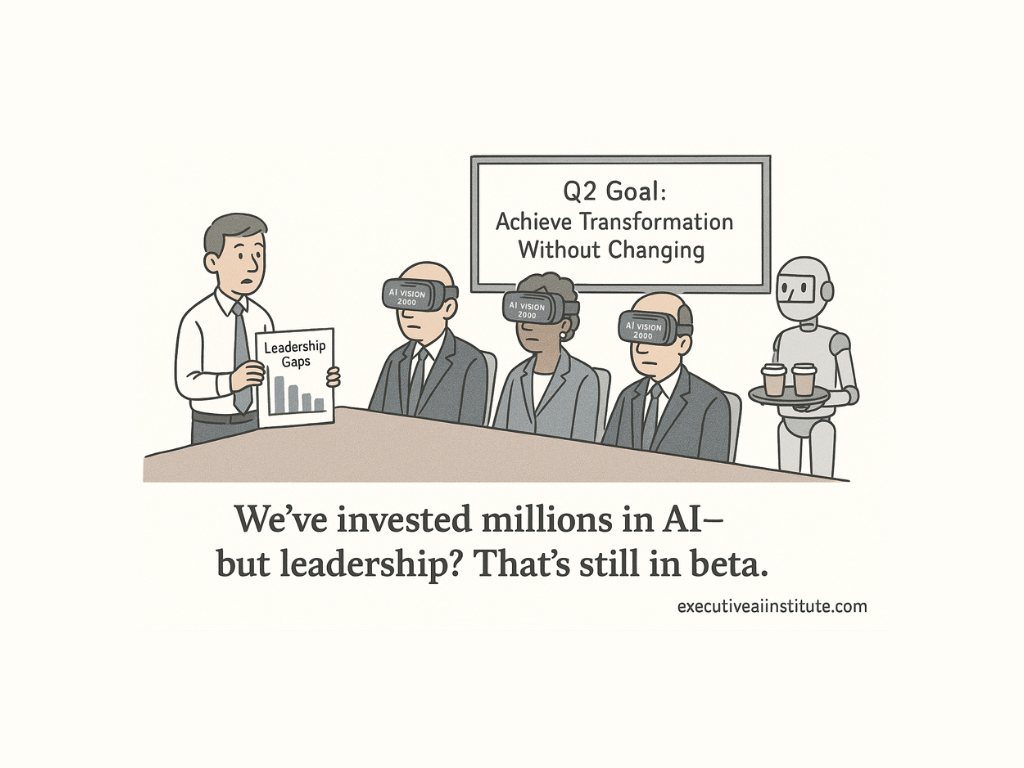Navigating the transformative landscapes of AI, Web3, and the metaverse requires us to shift how we perceive leadership, digital identity, and our presence online. It's like adjusting our sails to ride the wave, not just watching it pass by.
What's striking to me is the interplay of these technologies. It's not just AI or the Metaverse or decentralization in isolation. It's the way they're all coming together in what I call 'The Digital Convergence'. This convergence is reshaping our digital environment as we know it. It's the equivalent of a tectonic shift in the digital world, as technologies such as decentralization, the Metaverse, Web3, and AI not only advance in their own right but amplify each other in unprecedented ways.
As the lines between the physical and digital world continue to blur, so do the boundaries between these converging technologies. It's not just about understanding AI, or blockchain, or the Metaverse in isolation. It's about understanding how they all interconnect, creating a new digital paradigm that's far greater than the sum of its parts. As we navigate this new landscape, it's critical to invest our time, energy, and resources into understanding and leveraging these advancements.
When we talk about leadership in the era of AI and the metaverse, we're no longer looking at a 'command and control' approach. The leaders of the future need to be digital navigators, understanding the tech and its human implications. They need to cultivate a culture of lifelong learning and adaptability, spotlighting skills like critical thinking, creativity, and communication.
The shift away from a 'command and control' leadership approach is due to several factors inherent to the new digital era marked by technologies like AI and the metaverse.
-
Complexity of Technologies: AI, the Metaverse, and other related technologies are complex and rapidly evolving. Leaders need to understand these technologies and their implications, both positive and negative, to make informed decisions. They can no longer simply dictate actions without understanding the context provided by these technologies.
-
Interdisciplinary nature: The issues and opportunities created by these technologies span across multiple disciplines. A leader in this era must navigate across a range of fields like ethics, law, human-computer interaction, psychology, and others, requiring a broad knowledge base and a high level of adaptability.
-
Continuous Learning: The pace at which these technologies are evolving demands continuous learning. It's not sufficient for leaders to rely solely on past knowledge and experience. They need to stay updated, foster a culture of lifelong learning, and encourage their teams to do the same.
-
Importance of Essential Skills (There isn't anything 'Soft' about these skills so I personally rebel against the term 'Soft Skills'): As AI and automation take over routine tasks, human skills like critical thinking, creativity, and communication become more important. Leaders need to encourage these skills and create an environment where they can flourish.
-
Empowerment and Collaboration: In the decentralized digital world, hierarchical structures are being challenged and power is more distributed. Leaders need to empower their teams to take ownership and make decisions. This involves fostering a collaborative environment, where ideas can be freely exchanged and innovation is encouraged.
-
Ethical Considerations: These new technologies bring with them a host of ethical considerations from data privacy to the digital divide. Leaders of the future need to understand these implications and make decisions that balance technological progress with ethical responsibility.
Future leadership approaches need to be more nuanced and holistic model, placing greater emphasis on understanding, adaptability, and communication.
With Web3, we're stepping into a new territory where our online identities will be decentralized, putting more control in our hands. But, as the saying goes, with great power comes great responsibility. We'll need to be more proactive in shaping our digital identities and aware of our actions' repercussions. As we leave more digital footprints, the stakes are higher with privacy and security.
Our conception of work and productivity is also bound to change in an AI and metaverse driven world. More and more tasks once thought to be human-only domain are being taken over by AI, but that doesn't mean human workers are going obsolete. It's likely that we will be spending less time on repetitive tasks and more time on jobs that require a human touch. Things like emotional intelligence, creativity, and strategic thinking will take center stage. Our work will be less about what we produce and more about the value we bring to the table as individuals.
Moreover, the metaverse will change not just how we work, but also where we work. Remote work has already broken down geographical barriers, but the metaverse will make it even more immersive and interactive. Virtual meetings will feel just like sitting in the same room, and you'll be able to collaborate with colleagues in real-time, regardless of physical distance. It's a brave new world of work, where the physical office is no longer the center, but just one of the many places where work happens.
And then, there's the question of fairness and inclusion. The rise of new technologies always brings new opportunities, but it can also widen the gap between the haves and the have-nots. As we move forward, we must ensure that the benefits of AI, Web3, and the metaverse are distributed equitably. This starts with education and digital literacy. Everyone, regardless of their background or resources, should have the opportunity to learn about these technologies and how to navigate the digital world. We also need to ensure that the AI systems we build are unbiased and fair, reflecting the diversity of the people they serve.
The journey into AI, Web3, and the metaverse isn't just about technological innovation. It's about reshaping our society, our economy, and even our sense of self, to thrive in this new digital age. And as we take this journey, we need to carry with us our empathy, our creativity, and our shared commitment to a better, more inclusive future.
Leaders, have a duty to understand these trends, adapt, and help others navigate this complex digital landscape. It is the time to invest your time, energy, and resources into learning about these technological advancements. Join the discussion, engage with these emerging technologies, and help shape an inclusive digital future where everyone has a seat at the table. This isn't just about staying ahead; it's about leading responsibly in a rapidly evolving world. Embrace this journey, for it's a transformative one, poised to redefine not just the way we work or do business, but the very fabric of our social, economic, and political lives.
To find out more or to join our community visit www.distributedrepublic.xyz.


.png)
.png)
